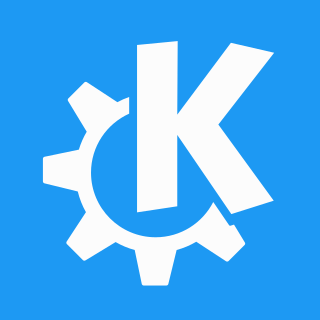
KDE is an international free software community that develops free and open-source software. As a central development hub, it provides tools and resources that allow collaborative work on this kind of software. Well-known products include the Plasma Desktop, KDE Frameworks, and a range of cross-platform applications such as Amarok, digiKam, and Krita that are designed to run on Unix and Unix-like operating systems, Microsoft Windows, and Android.
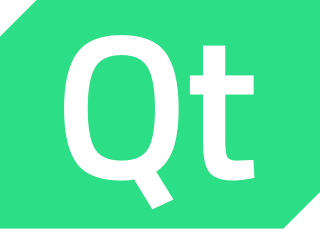
Qt is cross-platform application development framework for creating graphical user interfaces as well as cross-platform applications that run on various software and hardware platforms such as Linux, Windows, macOS, Android or embedded systems with little or no change in the underlying codebase while still being a native application with native capabilities and speed.

A wiki is a form of online hypertext publication that is collaboratively edited and managed by its own audience directly through a web browser. A typical wiki contains multiple pages for the subjects or scope of the project, and could be either open to the public or limited to use within an organization for maintaining its internal knowledge base.
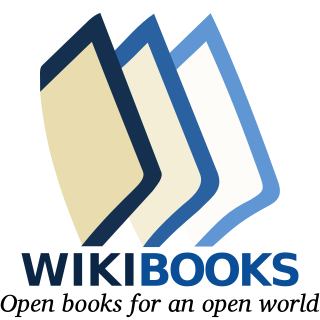
Wikibooks is a wiki-based Wikimedia project hosted by the Wikimedia Foundation for the creation of free content digital textbooks and annotated texts that anyone can edit.

Kubuntu is an official flavor of the Ubuntu operating system that uses the KDE Plasma Desktop instead of the GNOME desktop environment. As part of the Ubuntu project, Kubuntu uses the same underlying systems. Kubuntu shares the same repositories as Ubuntu and is released regularly on the same schedule as Ubuntu.

Open educational resources (OER) are teaching, learning, and research materials intentionally created and licensed to be free for the end user to own, share, and in most cases, modify. The term "OER" describes publicly accessible materials and resources for any user to use, re-mix, improve, and redistribute under some licenses. These are designed to reduce accessibility barriers by implementing best practices in teaching and to be adapted for local unique contexts.

The Wikimedia movement is the global community of contributors to the Wikimedia projects, including Wikipedia. This community directly builds and administers these projects with the commitment of achieving this using open standards and software.
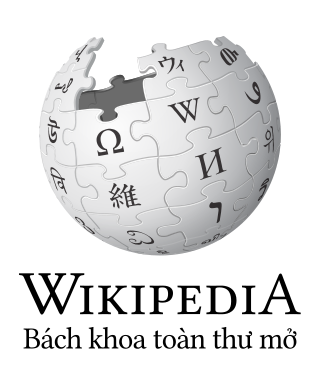
The Vietnamese Wikipedia is the Vietnamese-language edition of Wikipedia, a free, publicly editable, online encyclopedia supported by the Wikimedia Foundation. Like the rest of Wikipedia, its content is created and accessed using the MediaWiki wiki software.
An open-source curriculum (OSC) is an online instructional resource that can be freely used, distributed and modified. OSC is based on the open-source practice of creating products or software that opens up access to source materials or codes. Applied to education, this process invites feedback and participation from developers, educators, government officials, students and parents and empowers them to exchange ideas, improve best practices and create world-class curricula. These "development" communities can form ad-hoc, within the same subject area or around a common student need, and allow for a variety of editing and workflow structures.
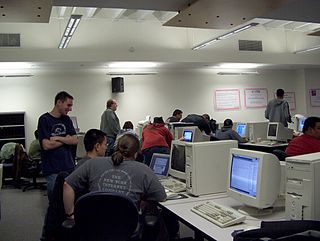
A Linux User Group or Linux Users' Group (LUG) or GNU/Linux User Group (GLUG) is a private, generally non-profit or not-for-profit organization that provides support and/or education for Linux users, particularly for inexperienced users. The term commonly refers to local groups that meet in person but is also used to refer to online support groups that may have members spread over a very wide area and that do not organize, or are not dependent on, physical meetings. Many LUGs encompass FreeBSD and other free-software / open source Unix-based operating systems.
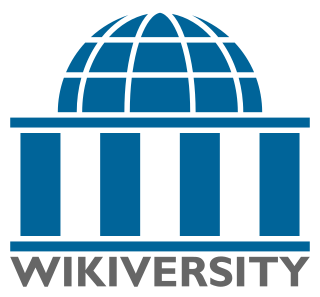
Wikiversity is a Wikimedia Foundation project that supports learning communities, their learning materials, and resulting activities. It differs from Wikipedia in that it offers tutorials and other materials for the fostering of learning, rather than an encyclopedia. It is available in many languages.

Google Wave, later known as Apache Wave, was a software framework for real-time collaborative online editing. Originally developed by Google and announced on May 28, 2009, it was renamed to Apache Wave when the project was adopted by the Apache Software Foundation as an incubator project in 2010.

LibreOffice is a free and open-source office productivity software suite, a project of The Document Foundation (TDF). It was forked in 2010 from OpenOffice.org, an open-sourced version of the earlier StarOffice. It consists of programs for word processing; creating and editing spreadsheets, slideshows, diagrams, and drawings; working with databases; and composing mathematical formulae. It is available in 115 languages. TDF does not provide support for LibreOffice, but enterprise-focused editions are available from companies in the ecosystem.

Frank Karlitschek is a German open source software developer living in Stuttgart, Germany.
Celeste Lyn Paul is an expert in interface design and usability. She is a contributor to KDE.
WebPlatform.org was a community-edited documentation website spun off by W3C. It sought to create a vendor-neutral online reference of Web platform standards. The project was a collaboration among Adobe Systems, Apple Inc., Facebook, Google, HP, Microsoft, Mozilla, Nokia, Opera Software, and W3C, who were called "stewards" of the WebPlatform project.
The Qt Project is an open collaboration effort to coordinate the development of the Qt software framework. Initially founded by Nokia in 2011, the project is now led by The Qt Company.
SwellRT was a free and open-source backend-as-a-service and API focused to ease development of apps featuring real-time collaboration. It supported the building of mobile and web apps, and aims to facilitate interoperability and federation.

KDE Projects are projects maintained by the KDE community, a group of people developing and advocating free software for everyday use, for example KDE Plasma and KDE Frameworks or applications such as Amarok, Krita or Digikam. There are also non-coding projects like designing the Breeze desktop theme and iconset, which is coordinated by KDE's Visual Design Group. Even non-Qt applications like GCompris, which started as a GTK-based application, or web-based projects like WikiToLearn are officially part of KDE.














